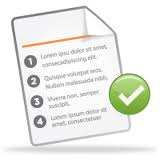Medical Identity Theft is a frightening and growing problem. I did two informative radio shows on this topic that you can listen to below. I’ve given resources at the end of each segment if you’ve been victimized or know someone who has:
http://www.fightsafe.com/shows/vashows_08_11/3-25-2010-Medical-Identity-Theft-&-Cane-Fu-Self-Defense-for-Seniors-and-the-Disabled.mp3
http://www.fightsafe.com/shows/vashows_08_11/2-18-2010-Medical-Crimes-&-Crime-Novels.mp3
——————————-
Cherie Gorden has worked for several investment companies throughout college and now does freelance and editing for financial blogs and forums.
 Like most people, you’re probably concerned about someone stealing your credit card account numbers but haven’t given much thought to the health insurance card you carry every day, which means you could be a target for medical identity theft.
Like most people, you’re probably concerned about someone stealing your credit card account numbers but haven’t given much thought to the health insurance card you carry every day, which means you could be a target for medical identity theft.
How to Protect Yourself
You can’t prevent some types of theft such as hacking into records in medical offices. However, a few steps can help protect yourself in most other circumstances:
Safeguard Insurance Cards: Keep your health insurance cards in a secure location. Never leave an insurance card laying out unattended.
Record Information: Keep a copy of all the important information you carry in your wallet or purse; this includes account numbers and contact information for all credit cards. For your health insurance card, be sure to record both the policy and the group numbers in addition on how to contact the insurance carrier. You might opt to hire a service to monitor accounts for you.
Read Insurance Mail Carefully: Open mail promptly and take a close look at the charges on every explanation of benefits. If they’re not yours, contact the insurance company immediately. This type of theft is on the rise. Understand what it is and take a few precautionary steps — don’t become another victim.
What Is It?
Medical identity theft occurs when an individual uses personal and identifiable medical information to get care or drugs. The thief typically uses a health insurance card or a social security number. It’s a problem that affects nearly 2 million Americans, costs $41 billion a year and is increasing despite the availability of identity protection plans and services.
The loss isn’t measured solely in dollars and is much harder to resolve than theft linked to credit cards, which can sometimes by derailed by a telephone call. The process is so cumbersome that many victims are dropped by their medical insurance carriers and just pay the fake bills, which sometimes exceed $100,000, according to Bloomberg’s tech blog.
Why It’s Happening
Two of the biggest reasons are a shaky economy and job loss. If health insurance is available, it might not be affordable. When uninsured, some get care by using another person’s identity. Another reason is the need to fuel a drug habit. A recent study revealed that half of the 757 victims interviewed knew the person who lifted their identity for medical purposes. Some had allowed this person to use an insurance card for services, products or prescription drugs, and nearly half the respondents went ahead and paid for the services erroneously charged to them.
The Consequences
The consequences of this type of theft goes beyond bills sent to the wrong person. If you have an allergy to certain drugs, but the thief doesn’t, you could find yourself being treated during an emergency based on his profile and unable to provide your own information. It can also have criminal repercussions.
In one case, a woman who gave birth to a drug-addicted baby used the health insurance card in a wallet she found. After abandoning the child, police officers knocked on the door of the card holder to find out why she had left the baby. Authorities took the children into protective care until she could prove she wasn’t the birth mother.
FOR MORE RESOURCES AND SAFETY TIPS, CHECK OUT CRIMEPREVENTION101.COM



